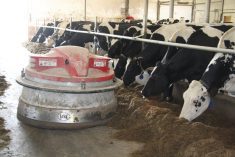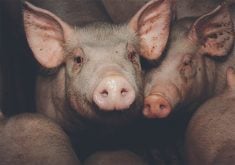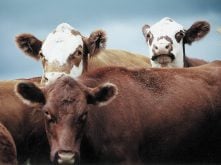EDMONTON — There won’t likely be a plebiscite to settle the barley marketing issue in this crop year, says agriculture minister Ralph Goodale.
“It’s not likely to happen before the beginning of the next crop year,” he said following a speech at the Canadian Federation of Agriculture meeting here.
The minister said he has seen a copy of the letter from a group called the Market Alliance asking the prime minister to honor an election pledge to hold a plebiscite on whether barley should be sold exclusively by the Canadian Wheat Board. The alliance is made up of the Alberta Barley Commission, Western Barley Growers, Western Wheat Growers and United Grain Growers.
Read Also

New World screwworm not seen as trade threat
Canadian cattle producers shouldn’t be worried about the New World screwworm, which has become a massive concern for ranchers in Mexico and is threatening the southern United States
“I am being prettily heavily lobbied by both sides on this question. It is not one-sided. There are people who hold very strong views both ways,” he said.
He said the group and other farm organizations have to tell him how the vote would be held and who could vote. He denied ignoring requests for meetings by the barley growers to discuss the issue.
Any proposal for a plebiscite to authorize the change must be legislated by Parliament, which Goodale says was the mistake made by his predecessor, Charlie Mayer. The Conservative minister opened the American barley market to Canadians by order-in-council, rather than legislation, and the courts ruled against that.
How to decide?
Goodale also asks under what basis he should call for a referendum.
“Is it after I receive 500 letters or do I need a petition with 10,000 names on it or ‘x’ number of farm organizations all passing resolutions saying this is the thing to do?”
Goodale also wants to know if all permit book holders should be allowed to vote or only barley growers.
“If barley is removed from the board it might have some bearing on the future effectiveness of the board.”
He added later he understood prairie farmers’ frustration when they can see but can’t touch higher barley prices across the border in California and the Pacific Northwest.















